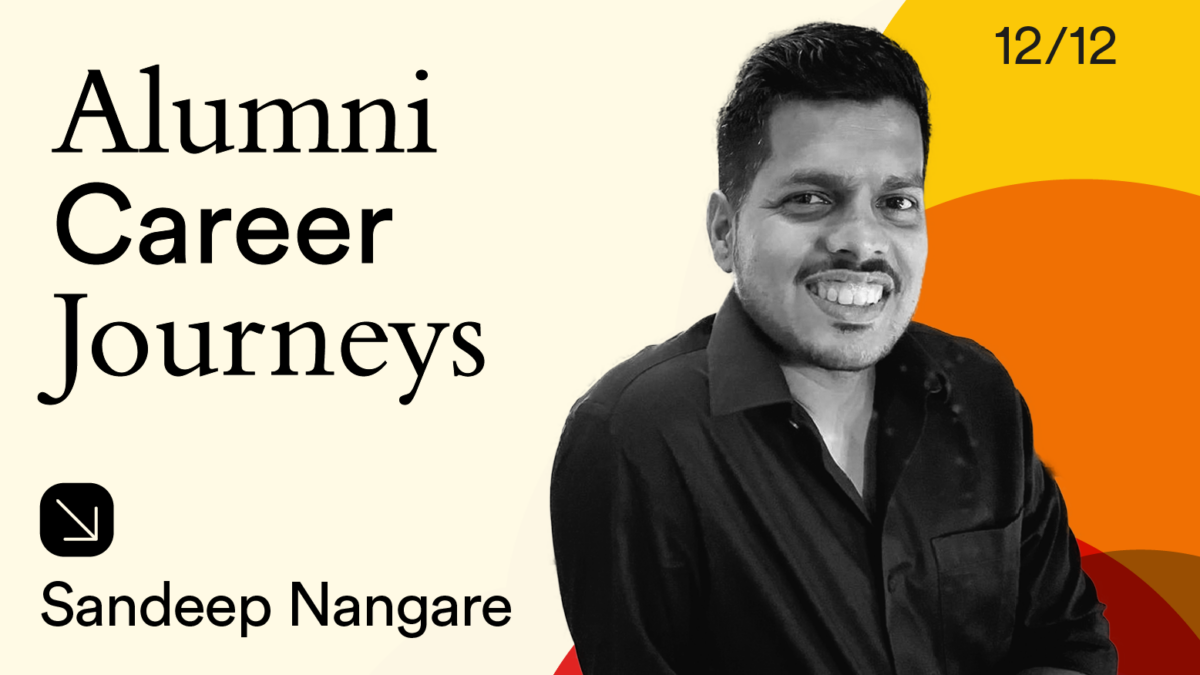As we highlight and celebrate the diverse career journeys of Hult’s global alumni network, Master’s Class of 2012 graduate Sandeep Nangare stands out as an incredible example of how a business education can be leveraged to drive meaningful social impact.
While he had planned to pursue a corporate career after Hult, something told him education might be his true calling. After graduating and returning home to India, Sandeep embarked on a two-year teaching fellowship. “This experience made me realize that I’m not a great primary school teacher,” he explains. “But, I discovered that this sector really needs people with the expertise I can bring around organizational efficiency, around scaling, and around sustainability.”
And so his career path was set—taking the business management skills he’d honed at Hult and applying them to increase efficiency and scale impact for enterprises serving impoverished communities in India. Fast forward to today, Sandeep is the Director of Program and Operations at Reality Gives, an innovative social enterprise that runs vital education programs in Mumbai’s Dharavi slum and other low-income communities.
With a journey that showcases the transformative power of education and a career built on the ethos of doing business to do good, Sandeep’s story makes him an outstanding final alumnus to feature in Hult’s 12 over 12 series. Prepare to be inspired.
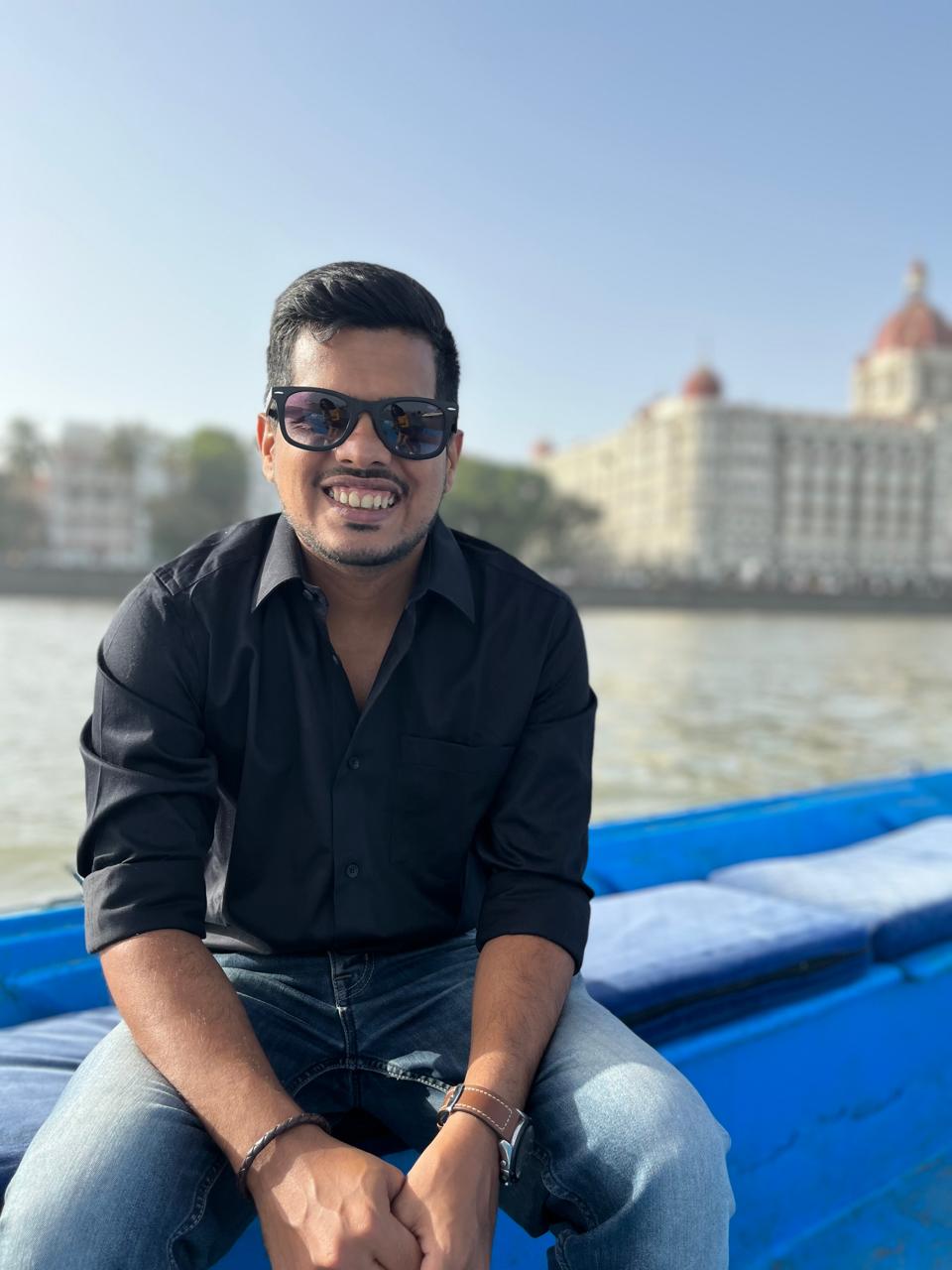

Hult: Tell us a bit about your background.
Sandeep: I was born in a mud hut in a very remote place in India, but my family came to the big city of Mumbai when I was a year old. Since then, I’ve been a city boy. Everything in my life—school, extracurriculars, friends—was centered around Mumbai. It was the only context I had.
I studied business as an undergrad, and my first job was in the stock market, so a master’s degree in business made a lot of sense to me. But I was also looking to expand my horizons beyond just the Mumbai bubble I had grown up in.
“I was looking to expand my horizons beyond the Mumbai bubble I had grown up in.”
Hult: What drew you to Hult?
S: A few key factors drew me to Hult. First, I was really interested in the international experience—not just in terms of location, but also the diversity of the student body. I had friends studying at other business schools with campuses abroad, but the student mix was often dominated by a few nationalities, which influences the classroom dynamics in terms of the conversations that you have.
Whereas for Hult, I had a friend who was studying at the San Francisco campus back then, and she told me about how the classrooms are truly international in terms of not being dominated by one voice or one nationality. You get to meet a lot of different people through the campus rotation, too.
I think the other reason why I picked Hult over other universities was the duration of the program—just one year. Plus, I had heard great things about the caliber of the professors, many of whom came from industry backgrounds rather than just education.
“I was interested in the international experience. Plus, I had heard great things about the caliber of the professors.”
Hult: You chose to study in Shanghai while at Hult. That must have been quite a change from Mumbai!
S: I don’t think you can ever fully prepare for the reality of that city. Everything that I had read or seen in movies about China was completely different from what it was like. It’s very cosmopolitan and I found it very welcoming.
In my cohort, there were 35 or 40 different nationalities represented, so no single group dominated. We all felt a bit like outsiders, and we all embraced it. We were constantly figuring things out together, whether navigating the city or just daily life. That shared experience of being outside our comfort zones was fantastic.
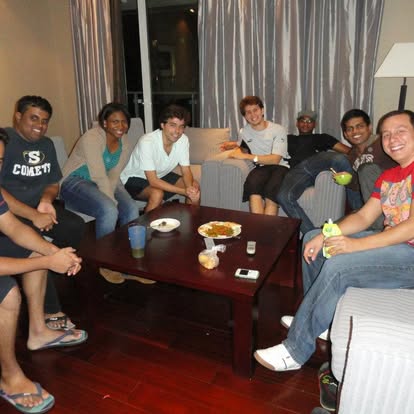

Hult: What was the most memorable course you took?
S: I don’t remember the name of the professor, but it was a project management course that was offered in San Francisco when I rotated there. It was taught as a project simulation. So we actually had a virtual company that we set up, and we all had different functions.
It was a truly simulated business classroom, where we had very minimal textbook learning in class. The whole concept was that your grade actually depends on how well your company does at the end of the module. That was the best part of it.
Hult: Did you always know you’d return to Mumbai and get involved in the social development sector after graduating?
S: My roots are in Mumbai—I was always going to come back. So there was no conversation around picking up a job in, say, the US, or London, or Shanghai after Hult. But I thought that I would always get a job in a corporate setting. I always had an inclination towards building organizations. But it was more towards, say, finance or industry.
However, I had this smaller inclination in the back of my head, knowing what education did for my family. My father was the first graduate from our village, and that got him to Mumbai city. And my life has changed because of that. He’s become an example for the rest of the people in the villages—so many people have since picked up the career orientation that he had. He became a lawyer, and now we’ve got plenty of people doing that as a profession in my village. So, I really saw the power of education, even back then.
Studying business at a business school was very task-oriented, very case-study oriented. Let’s see how we can optimize things, improve efficiency, and all those concepts. But I think in Module 2 or Module 3 at Hult I had one project on corporate social responsibility for a paper company. And that’s when it came together for me that these skills can be utilized in a different context, in a different setting, not just for profit.
“My father was the first graduate from our village, and my life has changed because of that. I really saw the power of education.”
Hult: Tell us a little bit about your career journey and how you decided on your path.
S: So before taking up a corporate job, I thought, let’s see what the social development sector is like in India. So, I picked up a two-year teaching fellowship where I worked as a primary school teacher. This experience made me realize that I’m not a great primary school teacher.
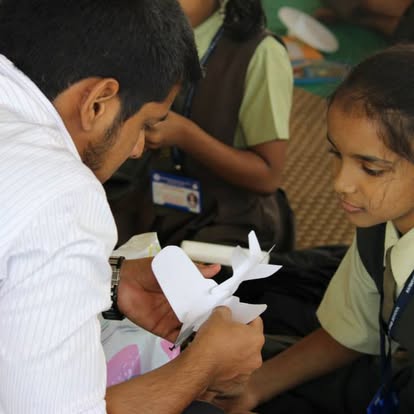

But, I discovered that this sector really needs people with the expertise that I can bring around organizational efficiency, around scaling, and around sustainability. Because, what I had seen in social development is, people register a lot of nonprofits. People are very passionate, but then they burn out, either due to losing passion for the cause or lack of other organizational skills. I discovered that this is the space where I can make a difference.
So, after the teaching fellowship, I worked as a consultant for about four or five years, where I consulted on projects helping to make organizations either sustainable or more efficient while they are scaling up.
“This sector really needs people with expertise around organizational efficiency, around scaling, and around sustainability.”
Hult: What do you do in your current role?
S: At the moment, I am working full-time with an organization called Reality Gives, which is based in Mumbai. Reality Gives is a social enterprise that generates its own revenue through a sister company called Reality Tours. People do a tour with us, and 80% of the profit that we get from the tour is what we use to run our community centers in Dharavi, Delhi, and Mathura.
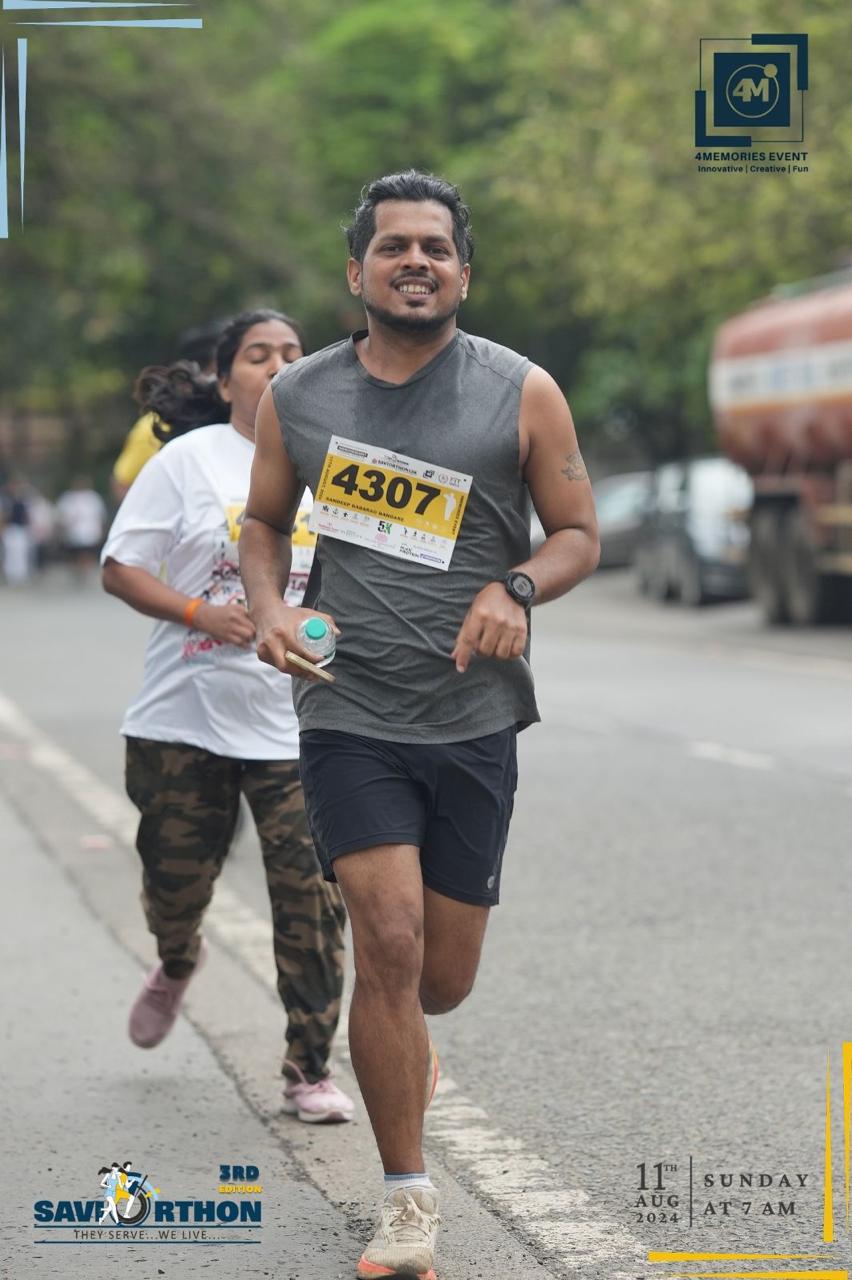

The flagship tour that we offer is the community slum tour in Dharavi. People perceive this as poverty selling, but it’s a very different ideology behind our tour. When the founders set up this organization, they knew that when people hear the word “slum,” the idea that comes to their mind is that there is poverty, there is crime, there is low standard of living, and people are miserable. But what we see in an industrial slum like Dharavi is, it actually generates a lot of revenue. There are more than 10,000 registered industrial units in that small space. It’s a 2.5 square kilometer space where 1 million people live.
So the concept behind the tour is: how do we change people’s perception of these communities? What we’re seeing in movies is not true or only partially true. The only way to change perceptions is by getting people into these communities. We showcase the industries that are present in the slums. We showcase how there are mechanisms around cleanliness, around community, around hygiene, and how the sheer pressure of the population is what’s bringing the difficulties that people have. So, that’s how we try to break the notion of what industrial slums are and what Dharavi is.
“When people hear the word ‘slum,’ the idea that comes to their mind is that there is poverty, and people are miserable. How do we change people’s perception of these communities?”
When the founders started this organization, education was also key. They initially had a community sports program and funded other social programs as well, but these didn’t lead to any long-term impact. So that’s why Reality Gives as an NGO was registered.
In Dharavi, the only source of information many children have is their friends or what they see on TV. Parents are often not very invested in education, and schools do not provide much exposure to the outside world. They may learn language and digital literacy skills, but the class size will be something like one teacher to 60 students. And because the infrastructure is not available, they’re not able to use or practice the skills they learn. That’s the gap we try to eliminate at Reality Gives.
When students come to Reality Gives, it’s a longer program. For example, the English language program is based on the Common European Framework, where students study for three and a half months, two hours each day. It’s one teacher to 15 students, so the students are talking more and are able to practice and be engaged. So, we are not trying to redefine the education system. What we’re trying to do is give the space for students to use these skills and develop them.
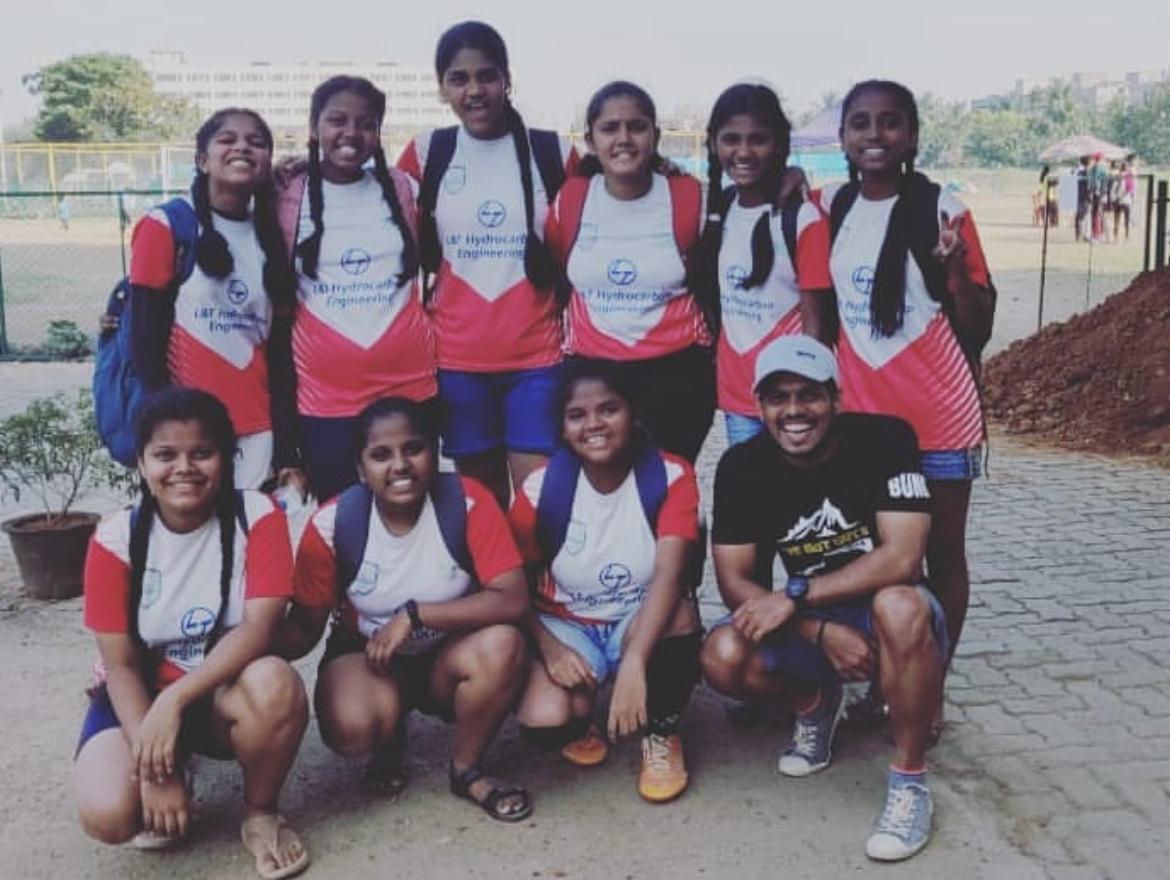

Hult: What advice would you give to someone interested in the social development or nonprofit sector as a career path?
S: First, you want to have a deep understanding of what your communities actually need. Whatever segment you want to work in—education, sanitation, whatever it is—try doing a fellowship, a groundwork role. Even if, say, you are great at marketing, first take up a role that is not related to marketing, but connected to the target audience that you’re serving, and then move into that specialist business role. The better you know the community you’re serving, the more impact you can have.
It’s also worth knowing that nonprofits generally run better than most mid-segment companies. They are accountable, they are process-oriented, and they are system-oriented. They work phenomenally, like a well-oiled machine, which isn’t always the case in more corporate environments. So that is very satisfying from a career perspective.
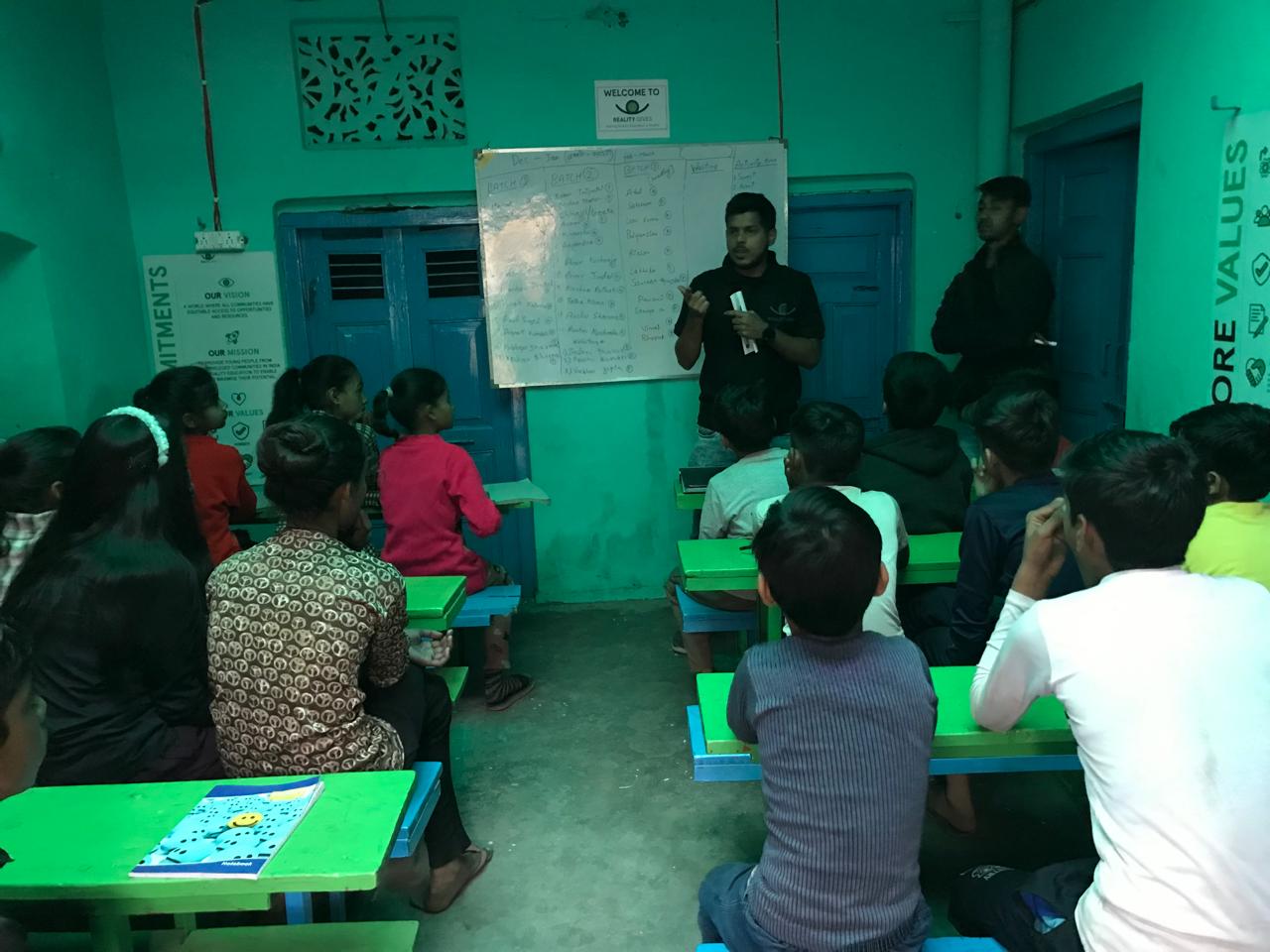

Hult: Where do you see yourself in 10 years?
S: I do see myself in education and I do see myself in social development. Maybe it will be at a different organization or maybe in a different setting or context, but I don’t think I’ll ever move away from the target audience or the communities that I serve.
For me, it’s never about a product or a tangible outcome. It has to always serve the community, specifically low-income communities, be it in Mumbai or any other location. Anything that I do, the end outcome has to be for the community.
“Anything that I do, the end outcome has to be for the community.”
Hult: Congratulations on your inspiring career journey Sandeep, and all the best for the future as you continue to make a positive impact!


